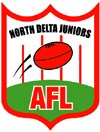Stability and Growth in the Land of the Maple Leaf
- Tuesday, August 10 2004 @ 01:51 am ACST
- Contributed by: Brett Northey
- Views: 5,841
 Australian football continues to grow in a country where it already has a well established base.
Australian football continues to grow in a country where it already has a well established base. Australian football has been played in Canada since at least 1989, when the Canadian Australian Football Association (CAFA) was formed (now AFL Canada). The founding clubs were the Mississauga Mustangs and Toronto Panthers. Aussie Rules has been played there ever since, with expansion across the province of Ontario, to 4 teams in 1990 and 7 by 2001, and there are now ten sides competing in the 2004 season of the Ontario Australian Football League (OAFL), with two further clubs planned via new players working with two of the stronger clubs. Junior development is also underway, with as many as 20,000 children exposed to the game in high schools in the last few years, although reports suggest that this effort has been restricted more recently.
Interestingly, some of the OAFL clubs are located in relatively small communities, such as Guelph (currently second on the ladder after a narrow loss to the Toronto Eagles) and Windsor. Such cities provide a smaller population to draw from, but perhaps greater opportunites for exposure. The population distribution across Ontario is such that most of the clubs are within a few hours drive of each other, which has no doubt added to the stability of this long established league.
Not so for the fledgling clubs of the provinces to the west. Calgary Kangaroos and Red Deer Magpies are the two currently active sides in Alberta, in central Canada. These clubs face long hauls to find competition, but appear keen to grow the game locally and are another positive development for Australian football.
 On the Pacific west coast of Canada lies the province of British Columbia. The Vancouver Cougars were formed in 2001 and have regularly played matches against US teams such as Seattle and Portland, in what is known as the North West Pacific Australian Football League (NWPAFL). There are exciting signs of growth in the region, with Vancouver Cougars splitting to form the Cougars and the Fraser Valley Eagles for local metro-style games. The hope is that the Eagles will develop into a separate club, providing much needed local competition. Victoria Lions, on nearby Vancouver Island, have also formed in 2004 and have immediately proven to be worthy adversaries for the Cougars. Add to that the junior development work being done with over 50 children in the North Delta Junior AFL, based in Vancouver, and there is every reason to think a fully fledged local league could emerge in the next few years, providing the stability that has characterised the OAFL and is making Canada into a cornerstone of international Australian football.
On the Pacific west coast of Canada lies the province of British Columbia. The Vancouver Cougars were formed in 2001 and have regularly played matches against US teams such as Seattle and Portland, in what is known as the North West Pacific Australian Football League (NWPAFL). There are exciting signs of growth in the region, with Vancouver Cougars splitting to form the Cougars and the Fraser Valley Eagles for local metro-style games. The hope is that the Eagles will develop into a separate club, providing much needed local competition. Victoria Lions, on nearby Vancouver Island, have also formed in 2004 and have immediately proven to be worthy adversaries for the Cougars. Add to that the junior development work being done with over 50 children in the North Delta Junior AFL, based in Vancouver, and there is every reason to think a fully fledged local league could emerge in the next few years, providing the stability that has characterised the OAFL and is making Canada into a cornerstone of international Australian football.
All this augurs well for the Northwind, the Canadian national side. Drawn primarily from the OAFL, this squad will increasingly take on a full Canadian character, and could well develop into a powerful force in international football. Of course, there are great things happening in other countries, so improved performance at the International Cup can only come from even faster gains than other nations, but expect an improved showing from Canada in 2005. The first tests have come, with the Northwind taking on the US Revolution in senior and under 23 matches, on July 31st and August 1st, at Humber College Ontario. Canada were narrow two goal losers in the main game. Encouragingly, there were several players from Alberta and BC in the Canadian squads.
Footnote: With Australian football looking strong across several provinces, one wonders whether any inroads will be made into the predominantly French speaking region of Quebec.


 RSS news
RSS news Twitter
Twitter Facebook
Facebook